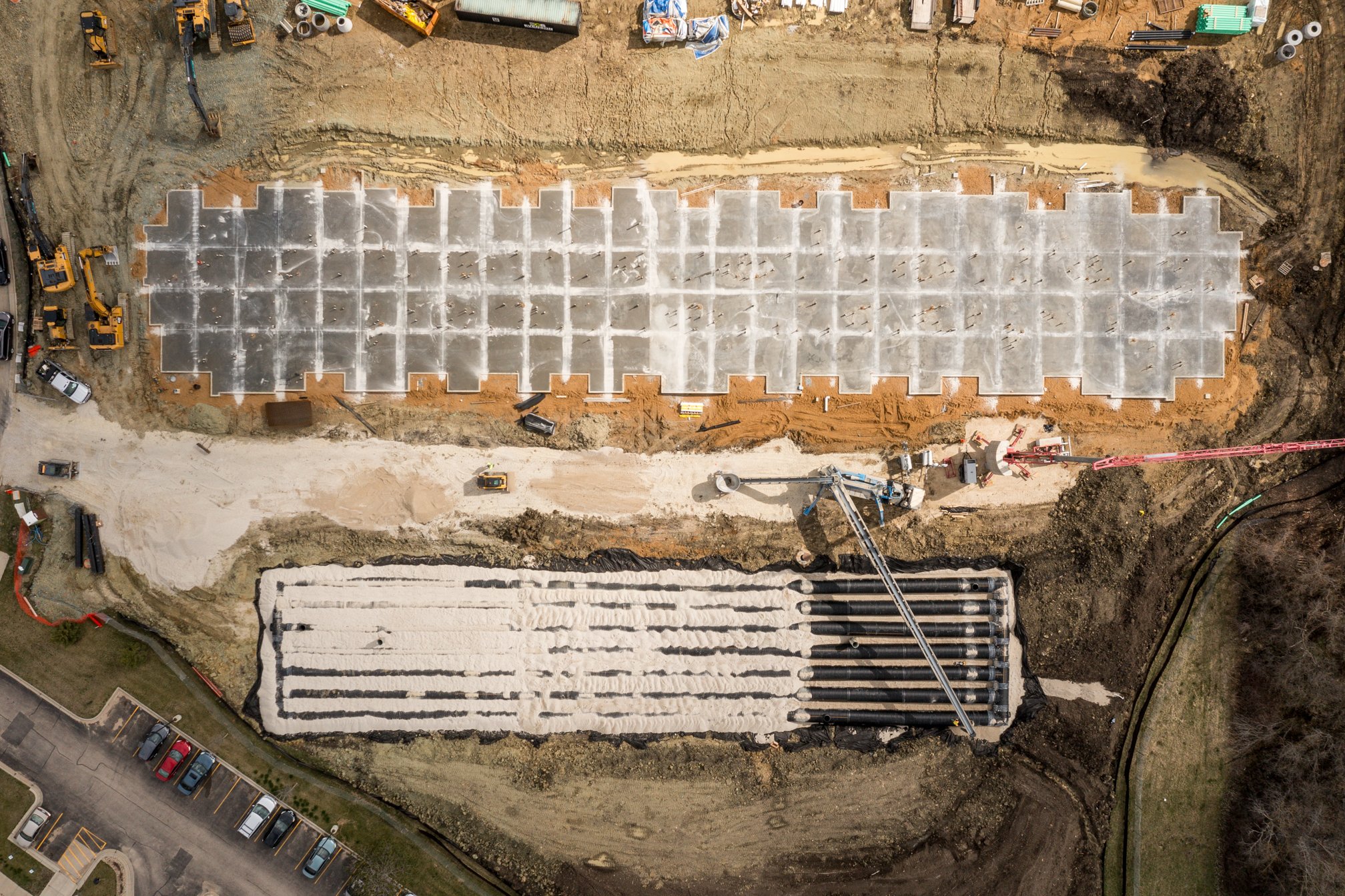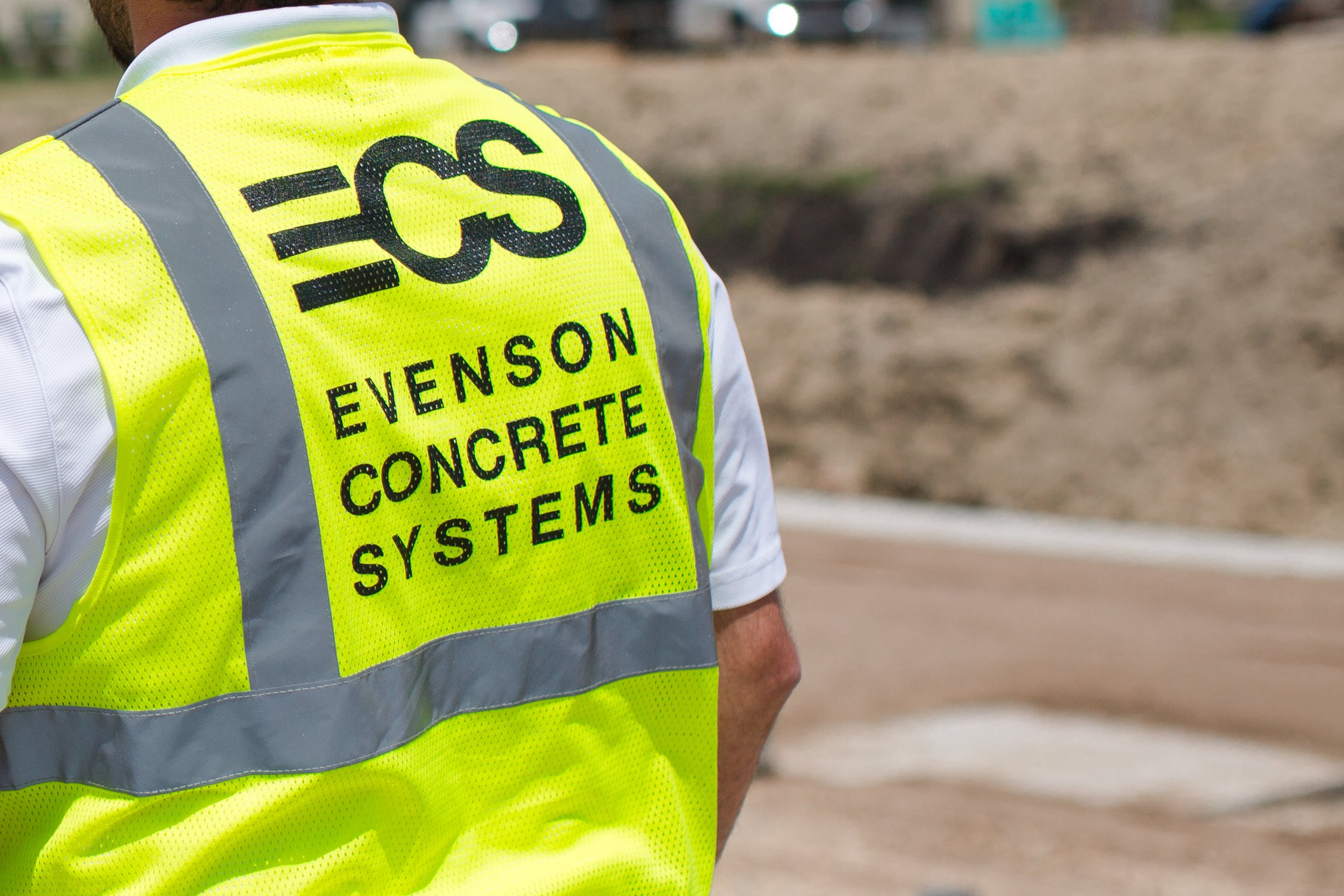WHAT IS CONCRETE CONSTRUCTION?
When you think of construction, concrete stands out as the bedrock of our built environment. From highways and high-rises to driveways and decorative patios, concrete is one of the world's most widely used and versatile construction materials. Its ability to withstand harsh elements, support heavy loads, and be molded into countless forms makes it essential for both residential and commercial applications.
But what exactly is concrete construction? What makes this material so reliable, and how is it used in modern building practices? In this blog, we’ll explore the science, process, and real-world applications of concrete construction, offering a clear view of why it remains a trusted choice for contractors, architects, and property owners
Inside the blog:
What Is Concrete?
Why Is Concrete So Popular in Construction?
What Is Concrete Construction?
The Concrete Construction Process
Types of Concrete Used in Construction
Real-World Applications of Concrete Construction
Challenges in Concrete Construction
Sustainability and Innovation
Why Choose Evenson Concrete Systems?
Final Thoughts
What Is Concrete?
Concrete is a composite material made primarily from a mixture of cement, water, and aggregates (like sand, gravel, or crushed stone). When these components are combined, they create a workable paste that hardens over time into a stone-like structure through a process called hydration.
The key ingredient—Portland cement—acts as the binding agent, reacting chemically with water to form a solid matrix that binds the aggregates together. This reaction continues for days and even weeks after the initial pour, allowing concrete to gain strength over time.
Why Is Concrete So Popular in Construction?
Concrete is a popular material across the construction industry due to a wide range of advantages:
1. Durability
Concrete is known for its long lifespan. It can withstand weather extremes, heavy traffic, and environmental stressors like moisture and chemicals.
2. Versatility
From structural elements like foundations, floors, and walls to decorative features such as stamped patios and polished countertops, concrete can be adapted to nearly any purpose.
3. Strength
Reinforced with steel rebar or wire mesh, concrete becomes incredibly strong and capable of bearing significant loads—making it ideal for infrastructure and large-scale commercial projects.
4. Energy Efficiency
Concrete has high thermal mass, which helps regulate indoor temperatures by absorbing and slowly releasing heat—an advantage in both hot and cold climates.
5. Low Maintenance
Once cured and sealed, concrete surfaces require minimal upkeep, making them ideal for driveways, parking lots, and other high-traffic areas.
What Is Concrete Construction?
Concrete construction refers to any building or infrastructure project where concrete is used as a primary material. It includes both horizontal construction (like sidewalks and roads) and vertical construction (like buildings, walls, and columns).
Here are a few common applications:
Foundations and Footings
Walls and Columns
Slabs and Floors
Driveways and Sidewalks
Retaining Walls and Decorative Elements
Each of these requires a different technique, type of mix, and formwork, making expertise in concrete construction essential to achieving long-lasting, high-quality results.
The Concrete Construction Process
Concrete construction is more than just mixing and pouring—each step requires precision and planning. Here’s an overview of the typical workflow:
1. Site Preparation
Before any concrete is poured, the site must be cleared, excavated, and graded. This includes removing debris, setting elevations, and compacting the soil to prevent settling.
2. Formwork Installation
Formwork refers to the temporary or permanent molds that shape the concrete until it hardens. Formwork can be made from wood, metal, or plastic, and must be carefully braced to withstand the pressure of the pour.
3. Reinforcement
Steel rebar or welded wire mesh is added to the formwork in many concrete projects to strengthen the finished product. This reinforcement helps the structure resist tensile and shear forces.
4. Mixing and Pouring
The concrete mix is delivered to the site (typically in ready-mix trucks) and poured into the prepared forms. Timing is critical—concrete begins to cure as soon as it's mixed, so placement must be efficient and accurate.
5. Finishing
Once poured, the concrete surface is leveled and troweled to the desired texture. This might include broom finishes for traction, or more polished finishes for decorative surfaces.
6. Curing
Curing is maintaining adequate moisture and temperature so that the concrete achieves optimal strength and durability. Curing methods may include wet blankets, plastic sheeting, or applying curing compounds.
Types of Concrete Used in Construction
Depending on the project’s requirements, different types of concrete may be used:
Ready-Mix Concrete – Delivered premixed in trucks, ideal for large-scale jobs requiring consistent quality.
Precast Concrete – Cast in molds off-site and transported to the job site. Common for panels, beams, and decorative elements.
High-Performance Concrete (HPC) – Designed for enhanced strength, durability, and resistance to harsh environments.
Stamped or Decorative Concrete – Textured and colored to mimic stone, brick, or tile, commonly used in patios and walkways.
Real-World Applications of Concrete Construction
Concrete can be found in nearly every corner of the built environment. Some of the most common uses include:
Residential
Driveways, patios, and sidewalks
Foundations and basements
Garage floors
Commercial
Warehouses and industrial floors
Parking lots and curbs
Tilt-up wall panels
Municipal & Infrastructure
Roads and bridges
Water treatment plants
Stormwater management systems
Agricultural
Grain bin pads
Feedlot floors
Equipment sheds
At Evenson Concrete, our team brings decades of experience to all these applications, ensuring that every project—large or small—is built to last.
Challenges in Concrete Construction
While concrete is a robust material, it's not without challenges. Contractors must navigate:
Weather – Cold, heat, and moisture levels all affect curing and performance.
Timing – Concrete has a short working window, so coordination between the mix, pour, and finish teams is essential.
Cracking – Improper joint placement or curing methods can lead to cracking, which compromises long-term durability.
Subgrade Issues – A poorly compacted base can lead to uneven settling, undermining the entire structure.
These complexities underscore the importance of hiring skilled professionals, like the team at Evenson Concrete, who understand the nuances of the material and how to deliver lasting quality.
Sustainability and Innovation
Concrete construction is evolving. As environmental concerns grow, innovations are helping make concrete more sustainable, including:
Supplementary Cementitious Materials (SCMs) like fly ash and slag reduce reliance on Portland cement.
Recycled Aggregates from crushed concrete or industrial byproducts.
Carbon Capture Technology is embedded into the mix to offset emissions.
Self-Healing Concrete and other smart technologies that extend lifespan and reduce maintenance.
Evenson Concrete Systems stays ahead of the curve by integrating these innovations into our practices whenever possible—helping to build a better future, one pour at a time.
Why Choose Evenson Concrete Systems?
With a commitment to quality craftsmanship, on-time delivery, and safe work practices, Evenson Concrete has become a trusted name in Southern Minnesota’s construction industry. Our team brings a deep understanding of concrete’s capabilities, along with a hands-on approach to every phase of the build.
Whether you’re planning a new commercial warehouse, refreshing your driveway, or building a strong foundation—our professionals are ready to deliver.
Final Thoughts
Concrete construction is more than just pouring a mix—it’s about precision, experience, and purpose. From foundational infrastructure to fine details, concrete plays a critical role in shaping the world around us. And when done right, it provides strength and stability that lasts generations.
At Evenson Concrete Systems, we don’t just build with concrete—we build with care, quality, and your vision in mind.
Ready to Build?
Visit Evenson Concrete Systems’ About Page to learn more about our team, our values, and our commitment to excellence in concrete construction. Let’s bring your next project to life—solid, sustainable, and built to stand the test of time.


